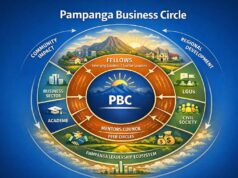Globe has reinforced its mobile leadership with its mobile business back to pre-pandemic levels, sustaining growth with second-quarter revenue hitting P27 billion, the company’s fourth highest quarterly revenue so far.
Year on year, Globe’s first half mobile revenue is at P54 billion, a 3% improvement versus last year. It was powered entirely by the growth in mobile data services, which also reached an all-time high.
Globe’s mobile data traffic in the first half of the year hit 2,177 petabytes, a 24% increase from the same period last year. This is higher than competition’s reported 2,081 petabytes for the said period.
Mobile data average revenue per user (ARPU), likewise, continues to increase and is now at 9.7 gigabytes per month, up 20% year on year and 8% quarter on quarter.
The strong performance was driven by its prepaid brands, which utilize a lot of mobile data and other non-telco solutions such as mobile wallet GCash.
“Mobile data has benefited from increased mobility and the reopening of the economy. And moving into the second half of the year, we are well aware of the inflationary pressures that we’re facing. Because of that, our focus has always been to provide our customers with relevant products and services that will provide them the best value,” said Issa Guevarra-Cabreira, Globe’s Chief Commercial Officer.
Meanwhile, Globe continues to expand its fiber footprint, with fiber subscribers and revenues rising by a solid 102% and 135%, respectively, against the same period of 2021. Globe has already rolled out over one million Fiber-To-The-Home (FTTH) lines as of end June, allowing it to better compete in the market.
Home Broadband’s total revenues have also exceeded pre-pandemic levels at P13.8 billion.
Although the Home Broadband market is still underserved, Globe believes that the postpaid broadband market is already nearing its saturation point. This points to lower market segments in need of fiber connectivity at more affordable levels that remain unserved.
Globe is thus responding to this unfilled need for fiber connection in communities through the launch of TMBayan Fiber WiFi, a service especially designed for the prepaid market looking for better connectivity at a more affordable cost. TMBayan Fiber WiFi taps sari-sari stores and similar “tambayans” as community WiFi hubs.
“There is a segment of the market that is predominantly prepaid but is now in need of better speeds and more reliable connection that fiber can provide,” Cabreira said.
TMBayan Fiber WiFi is initially available in over 200 hubs across the country: 53 in Metro Manila; 89 in Luzon including Bulacan, Pampanga, Cavite, and Laguna; 31 in Visayas, specifically, Cebu; and 29 in Mindanao, including Davao del Norte and Davao del Sur.
To learn more about Globe, visit www.globe.com.ph.




